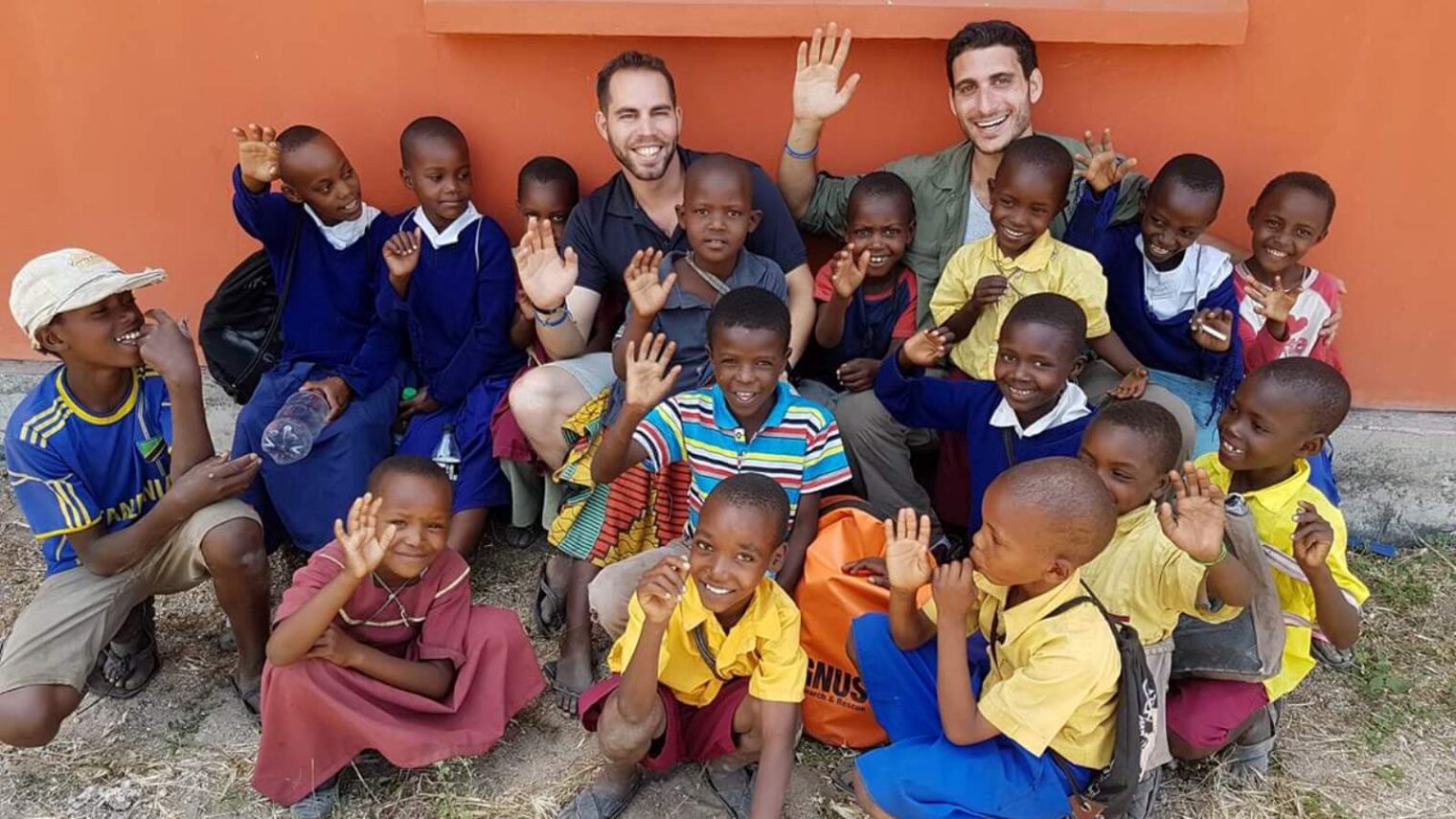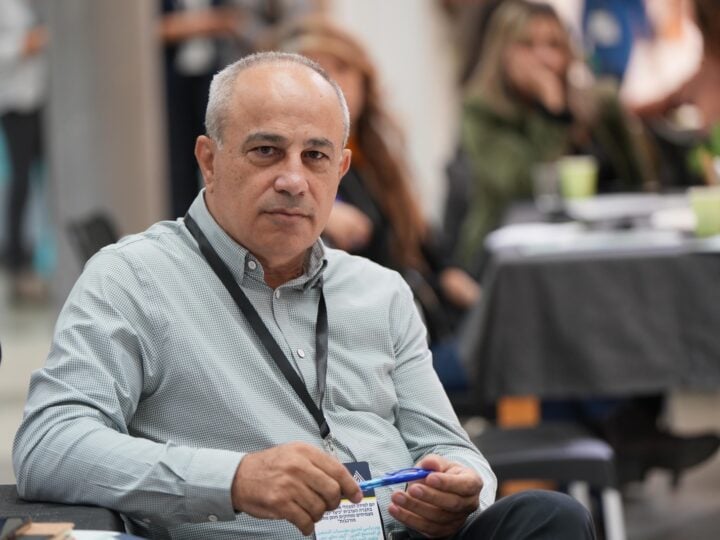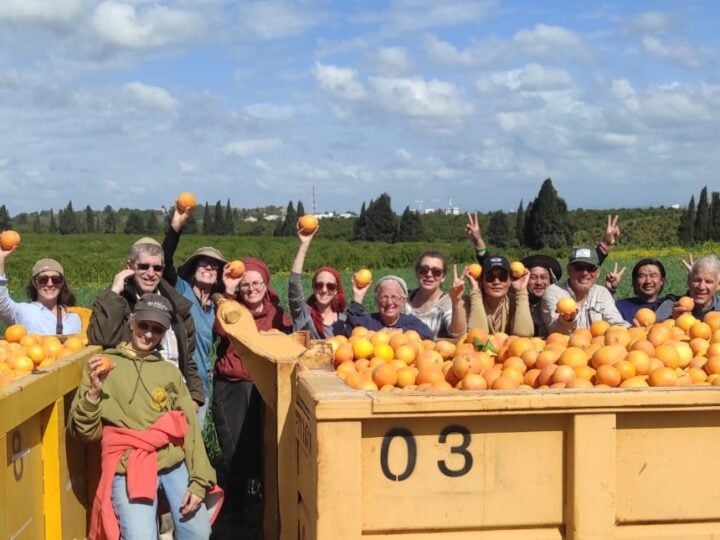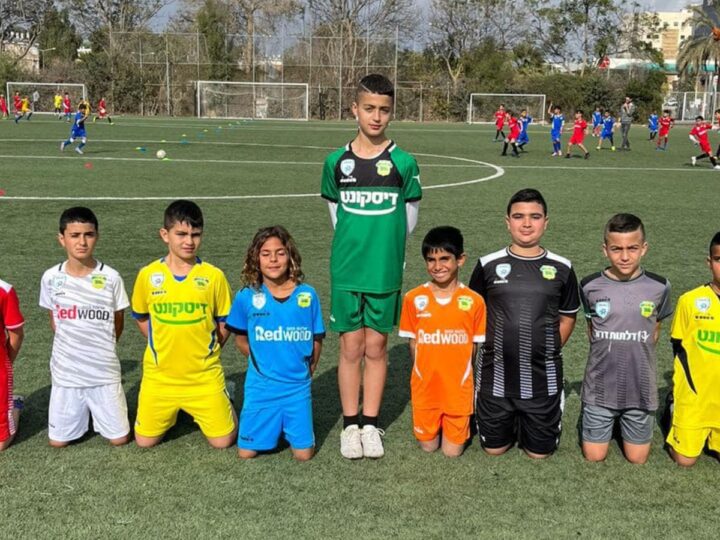A solar electricity generator and storage batteries are providing constant electricity for the first time ever to Nkaiti Medical Center in Minjingu, a Tanzanian village of about 7,000 Masai subsistence farmers and cattle ranchers – thanks to the Tel Aviv University chapter of Engineers without Borders (EwB TAU).
“There’s power!!! There’s a light!!” reported team member Gal Aviram gleefully on Facebook on October 25, seven days into the group’s two-week working trip to Tanzania.
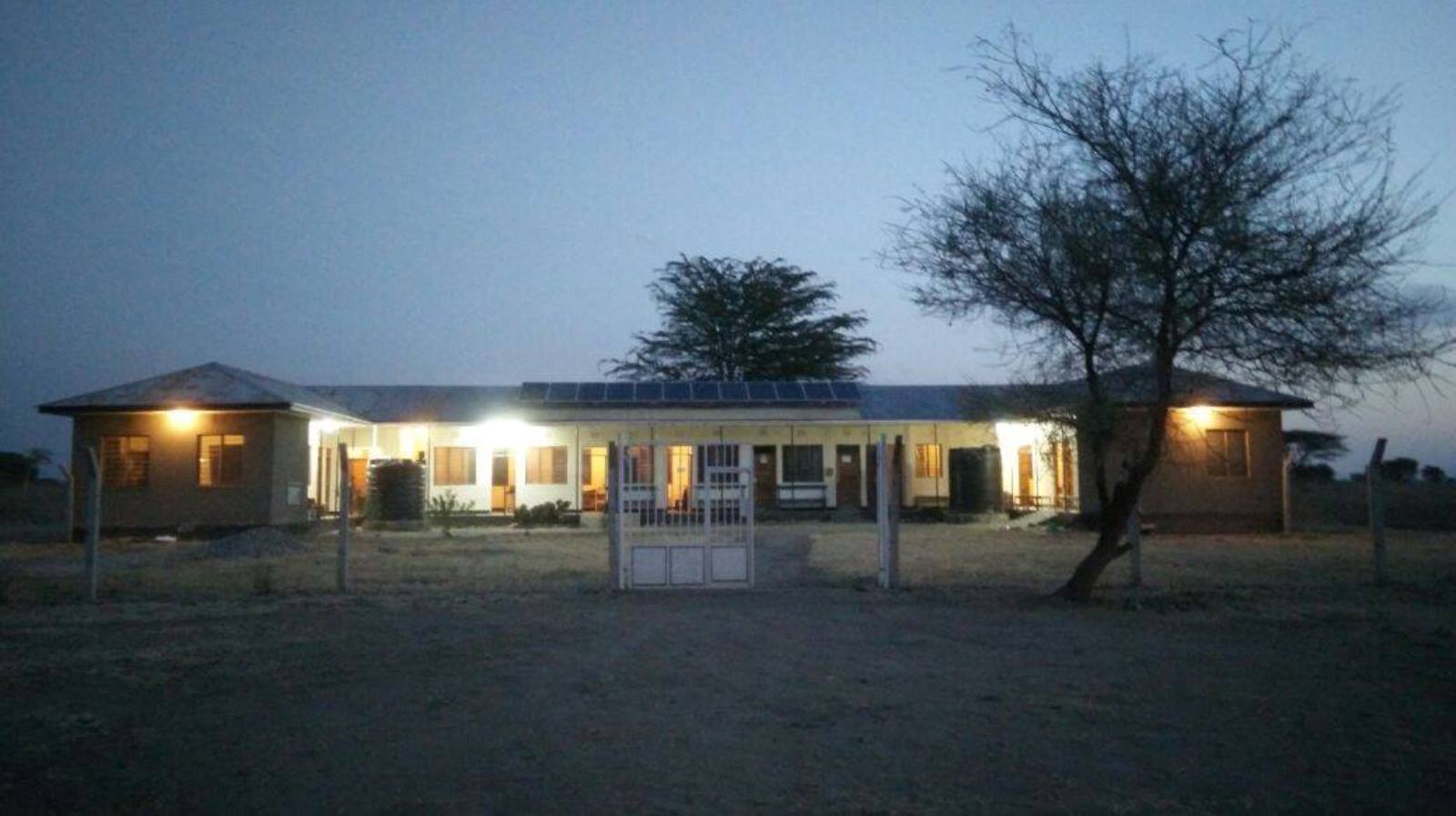
Since Minjingu is not connected to the national grid, the medical center struggled to provide basic healthcare services, lacking the ability to store vaccinations, sanitize the equipment, use electrical appliances and operate during nighttime, the students explained in their crowdfunding campaign literature.
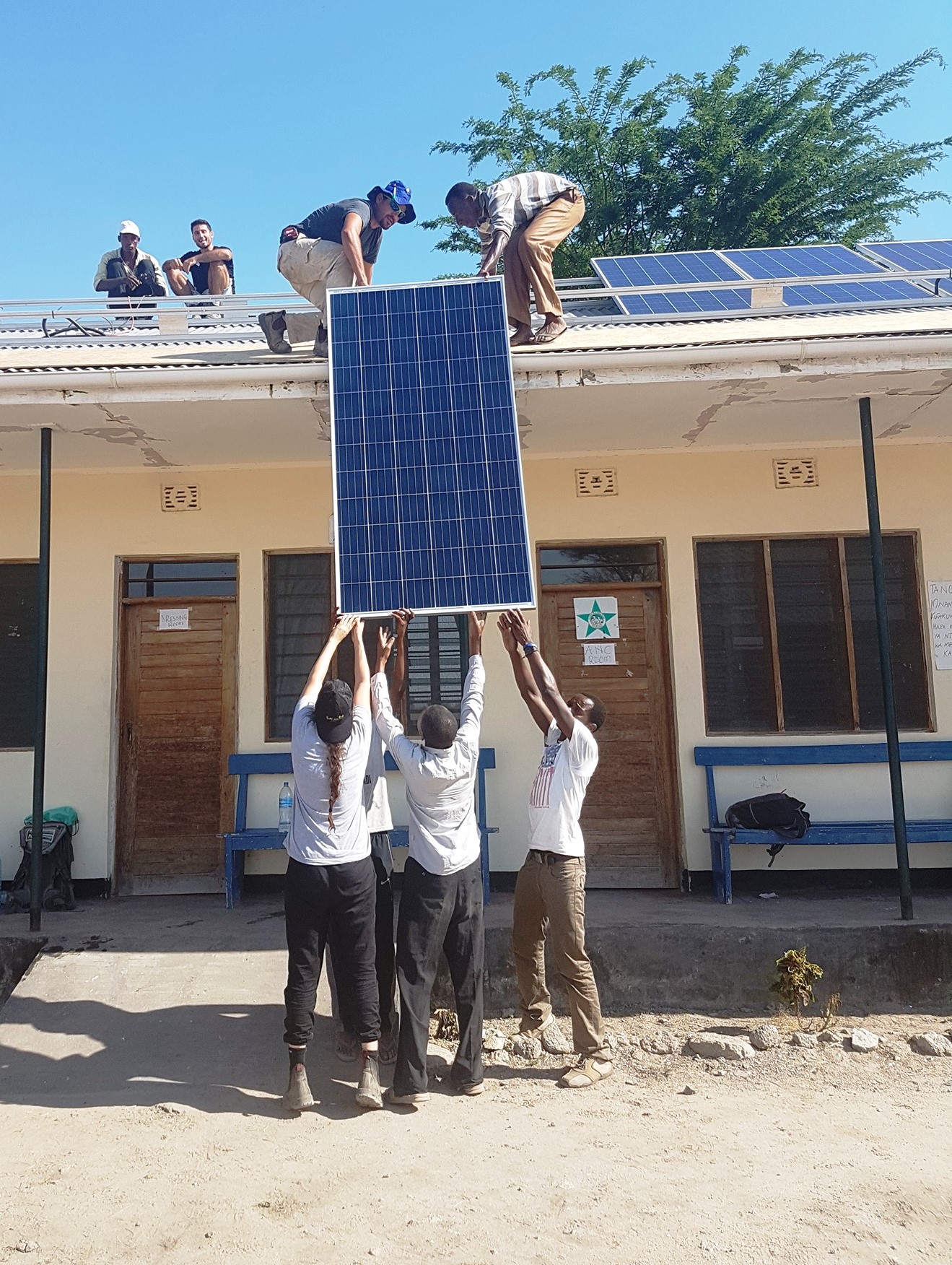
Hoping to bring an immediate and long-term improvement to the community’s quality of life, EwB TAU students planned the project and 10 of them flew out to install the generator and batteries in cooperation with local companies and volunteers.
Jonathan Haran, head of EwB Israel, says the solar project is made possible by donations to the ongoing crowdfunding campaign, a grant from Kirsch Foundation in California, and contributed supplies and knowhow from Ormash Solar Technology in Ein Vered and the Israeli office of the global company Schneider Electric, as well as Tel Aviv University departments including its Center for Renewable Energy.
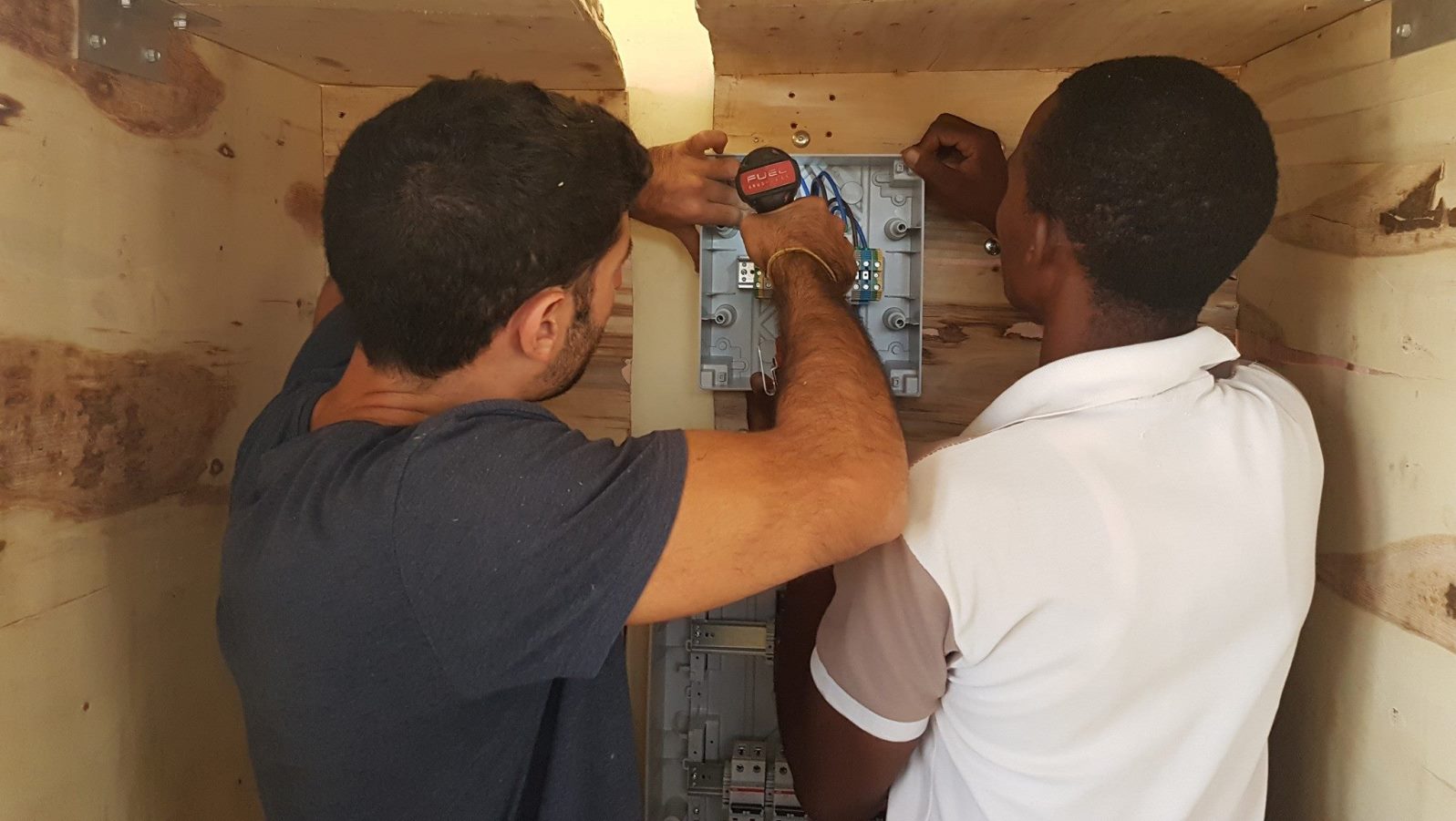
This is the group’s second project in Minjingu. In 2014, they designed and installed a rain-collection and purification system to solve a serious health problem. Because the drinking water from an underground spring is exceptionally high in fluoride, many local children were born with severe developmental conditions such as skeletal deformities and cleft lip.
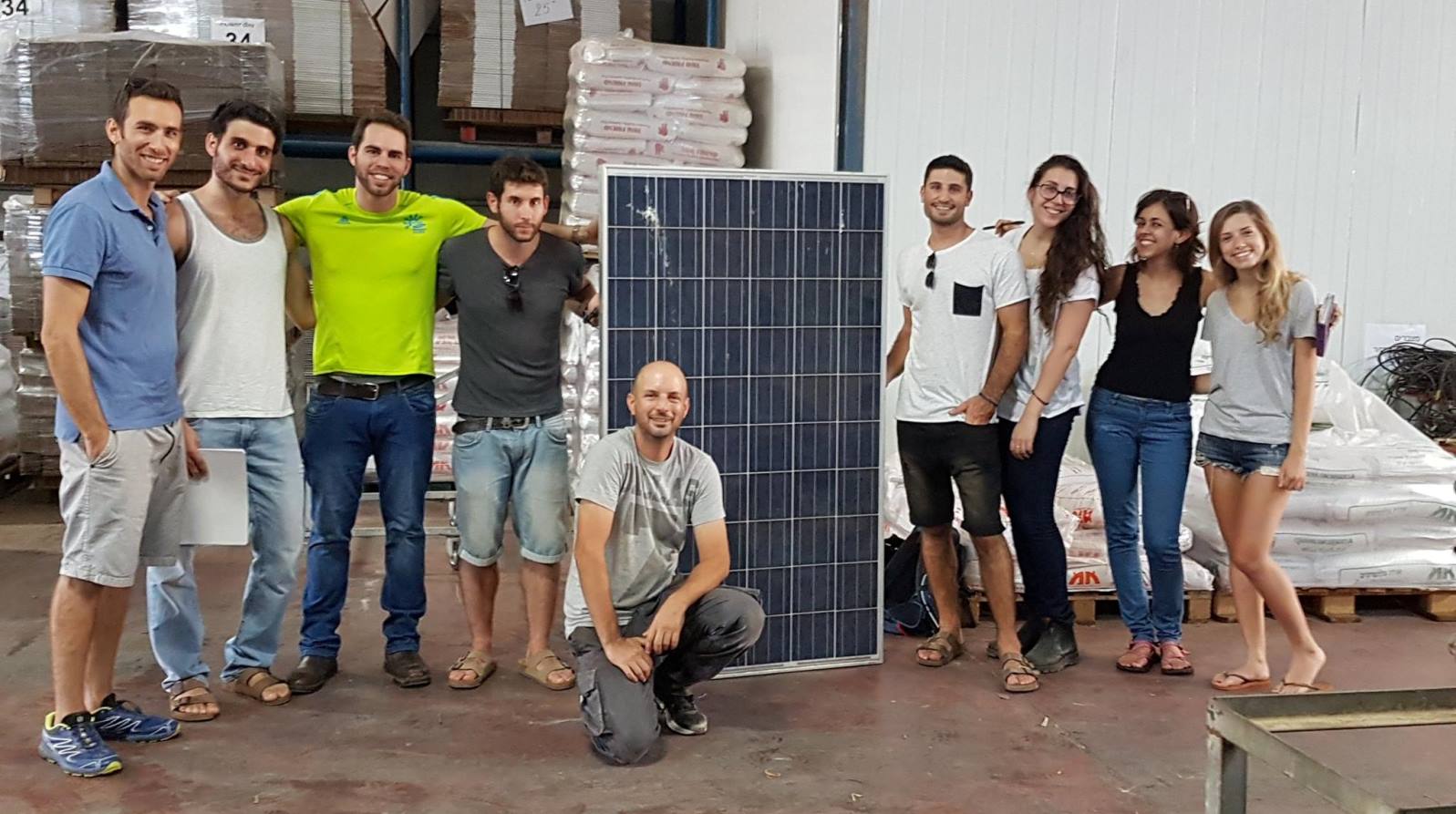
The Israeli students built the rainwater system in collaboration with locals and trained them in performing maintenance. The villagers have added more tanks on their own, and during the October trip the Israeli students performed tests in preparation for the final expansion of the system.
Doing good around the world
EwB Israel is part of a worldwide nonprofit organization operating in about 40 countries. Students and professionals in the fields of engineering, economics, environment, health, education and society work in close cooperation with local communities and organizations to improve quality of life in Israel and in developing countries through education and simple, inexpensive engineering solutions.
EwB Israel includes chapters also at the Technion-Israel Institute of Technology; Hebrew University Faculty of Agriculture, Food and the Environment in Rehovot; Hebrew University in Jerusalem; and Afeka College of Engineering in Tel Aviv.
EwB TAU is establishing a biogas system for the university’s zoological garden to reuse waste currently being discharged into the Kishon River. EwB HUJ partners with the municipality to run a year-round course teaching kids how to craft their own renewable energy devices using materials donated by the Rehovot branch of the multinational company Applied Materials.
The Technion chapter, established in 2008 with a biogas project in Nepal, designed and implemented a safe drinking-water system at a school in northern Ethiopia.
The Rehovot Faculty of Agriculture chapter, founded in 2012, introduced advanced Israeli technologies and methodologies to Ethiopian farmers that resulted in a 10-fold increase in yields.
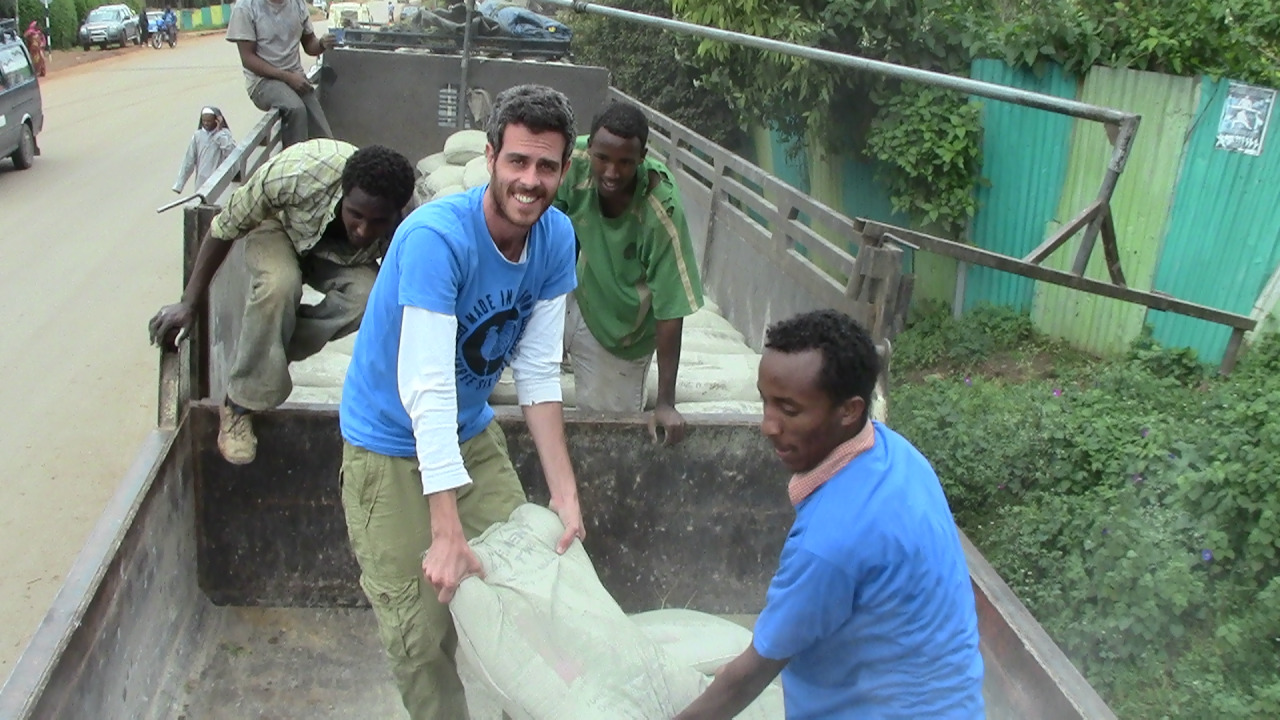
“There are thoughts of replicating this successful model in other places,” says Haran, who presented models for off-grid solutions for Africa and Nepal at the recent Tel Aviv Cities Summit segment of the DLD Tel Aviv Innovation Festival.
“Volunteering in EwB Israel is a fulfilling and rewarding experience: you impact lives of people who really need it, you learn and specialize in interesting engineering operations and proudly represent Israel in these remote places,” says Haran. “We are hoping to be included in the government’s endeavors of opposing the BDS movement.”
For more information, click here.




